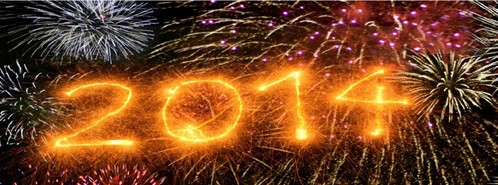Fireworks Safety
While the information contained in this news article was current and accurate when we posted it, it may not necessarily represent current WVOEMS policy or procedure. If you have any questions, please contact our office at 304-558-3956.
Posted: Thursday, July 3, 2014 3:25 PM
Fireworks Safety
Summer celebrations are coming up and West Virginians will be busy with cookouts, family reunions and community parades. Unfortunately, celebrations can quickly turn to tragedy for families, especially when children and teenagers are killed or permanently injured by so-called "safe and sane" fireworks.
"ANY fireworks-type materials are dangerous," states Acting State Fire Marshal Anthony Carrico. "Even sparklers can burn hot enough to melt gold and cause third degree burns. Basically, there is no such thing as safe fireworks."
Facts from the National Fire Protection Association
- According to the National Fire Protection Association (NFPA), fireworks consistently cause more damage to property than all other outdoor fire causes combined for the Fourth of July (day) in the United States.
- According to the U.S. Fire Administration (USFA), 70 to 75% occur during a 30-day period surrounding July 4 (June 23- July 23).
- "Safe and sane" fireworks are neither. Fireworks and sparklers are designed to explode or throw off showers of hot sparks. Temperatures may exceed 1200°F-hot enough to melt some metals.
- Seven out of 100 persons injured require hospitalization.
- Common injuries are to the hands (34%), face (12%), and eyes (17%).
- Although careless smoking is the leading cause of fire deaths nationally, the chances of someone dying in a fire caused by fireworks is three times greater than the corresponding risk than when a cigarette is in use.
- Burns are the leading cause of injury from fireworks, followed by lacerations and contusions, all primarily involving the fingers, hands, eyes, and facial area.
How Can You Prevent Fireworks Injuries?
By far, the safest way to enjoy fireworks is to attend an outdoor public display put on by specially trained pyrotechnic professionals.
- If you're going to use sparklers and novelties (the ONLY items permitted by WV law) USE WITH EXTREME CAUTION. Older children should be closely super-vised and younger children should not be allowed to play with fireworks at all.
- BEFORE USING ANY LEGAL FIREWORKS, read and follow all warning instructions printed on the label.
- LIGHT ALL ITEMS OUTSIDE in a clear area away from houses, away from yard debris such as grass, brush, leaves, etc., and away from flammable materials (gasoline cans, newspapers, etc.).
- ALWAYS KEEP A BUCKET OF WATER nearby for emergencies and for pouring on items that fail to ignite.
- NEVER TRY TO RELIGHT or handle malfunctioning fireworks. Douse and soak them with water, then properly dispose of them.
- ALWAYS make sure other people are out of range before lighting fireworks. Also be aware that pets have sensitive ears and can be extremely frightened or stressed on the Fourth of July. Keep pets indoors to reduce the risk of injury.
- KEEP unused fireworks away from firing areas.
- NEVER IGNITE FIREWORKS IN A CONTAINER, especially in a glass or metal container. Fireworks are more hazardous when confined.
- STORE fireworks in a cool, dry, secure place. Check instructions for special storage directions.
- NEVER TOUCH UNEXPLODED FIREWORKS, and make sure children understand never to touch them.
Follow The Law!
- Permissible under West Virginia law are items called "Novelties and Sparklers": "snakes" and "glow worms", smoke devices that produce white or colored smoke, trick noisemakers which include "party poppers", "string poppers", and "snappers" or "drop pops", and wire sparklers, as well as other sparkling devices which emit showers of sparks and sometimes a whistling or crackling effect when burning.
- BY STATE LAW, NONE OF THESE NOVELTIES, SPARKLERS AND SPARKLER DEVICES ARE TO BE SOLD TO ANYONE UNDER THE AGE OF 16.
- In West Virginia, the most dangerous types of fireworks prohibited by law include large reloadable shells, festival balls or shots, cherry bombs, aerial bombs (skyrockets, Roman candles), daygo bombs, M-80 salutes and firecrackers. Also banned are the mail-order kits designed to build fireworks.
- VIOLATION OF THE FIREWORKS LAW IS A CITABLE OFFENSE.
The West Virginia State Fire Marshal's Office wishes everyone a safe, happy summer season. But remember: it's everyone's special responsibility to protect our young children and teenagers by ensuring their safety, especially when exposing them to amateur use of fireworks.

